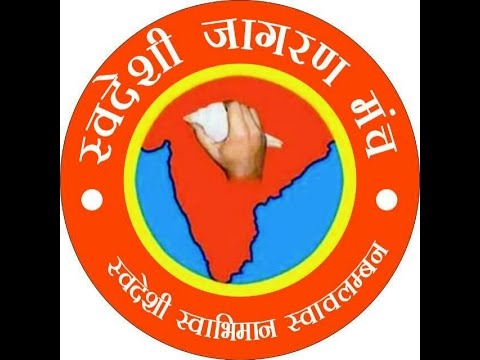
Resolutions passed in the two day session of the National Council of Swadeshi Jagaran Manch organised in Guwahati (Assam) on 20, 21 May, 2017
Time to End Globalisation
More than half of the tenure of the present Central Government is over. Hence this is the appropriate time to evaluate the contemporary national and international economic scene. The world has not yet been able to get over the world economic crisis that began in the year 2008, and its effect is seen in one or the other way in different parts of the world. The work of renewed stimulation in the American economy is still ongoing. Europe is in a deep economic crisis, Japan is battling depression and a slowdown has commenced in China.
According to the latest report of UNCTAD, whereas the world GDP is growing at the rate of 3 percent, the growth of international trade is merely 1.5 percent. Such a situation was not witnessed in the past 25 years. The implication is that today it is not international growth that is driving domestic growth, but it is domestic growth that is increasing international growth. The victory of Donald Trump’s slogan of ‘America First’ in America and the exit of Britain from the European union indicates that end of globalisation has started. The elections in France and Germany have intensified the debate over globalisation. The Chinese economy has weakened internally and China is trying to profit from the delicate international situation. Engaged in an effort to unseat America and grab international leadership, China is doing exactly what America had done a few decades back. The speech of the Chinese President in the World Economic Forum at Davos and the recent Belt Road Initiative (BRI) points in the direction of its efforts to promote globalisation. This mentality shows that the effort to globalise has started afresh.
The statement of the national sage Dattopant Thengde ji that “Internationalisation is merely a momentarily stable phase and the national alone is stable”, is proving to be true. Recognising that the days of aggressive globalisation are over and that the possibilities in international trade are weakening, India will now have to take meaningful steps.
The growth of GDP has been estimated at 7.1 percent after changing the methods of measuring GDP and other economic indicators and the indices of industrial production etc. Today, India has become the fastest growing economy of the world, but job creation remains a challenge even now. According to fresh reports, employment is increasing merely at one percent per annum. This is worrying situation. A squeeze and rationalisation of employment is going on in the IT industry as well. Interrupted projects have not started even now and the NPA problem shows no improvement. Although a huge amount of money has been deposited in banks after demonetisation, borrowing has not yet risen and domestic investment is at a standstill. The government has opened up many new sectors for FDI and raised its limits in other areas. Although direct foreign investment was nearly 56 crore dollars last year, a closer look reveals that it is mostly ‘brown field’ investment and a major part of the investment is in E-commerce only. More than fifty percent of the investment is coming from Mauritius and Singapore. It is worth recalling that these countries are notorious for money laundering. It is also seen that the direct investment is coming in the form of private equity, which will return several fold in the coming years. Very little investment is ‘green field’ i.e., in new enterprises. Another important dimension of foreign direct investment is that jobs decrease due to technological change.
The Swadeshi Jagaran Manch appreciates the nationalistic sentiment of the present government in giving primacy to government purchases of domestically produced commodities. But the time has come now for the government to promote domestic investment instead of encouraging foreign direct investment. In this context, the Swadeshi Jagaran Manch demands that the government, keeping in mind the anti-globalisation winds blowing globally, should build the economic structure of our country. Halting the misdirection of India’s youth power is a challenging task. India’s large domestic demand provides a significant opportunity. That is why, instead of providing opportunities to multinational companies to profit, an economic model based upon domestic demand should be constructed. Today, when it is necessary to generate crores of jobs, the Swadeshi Jagaran Manch demands that the government should accord primacy to these factors in its thinking. What is needed today is that all international trade agreements, present and proposed, should be reviewed extensively, and extensive efforts should be made to mould them to our advantage.














